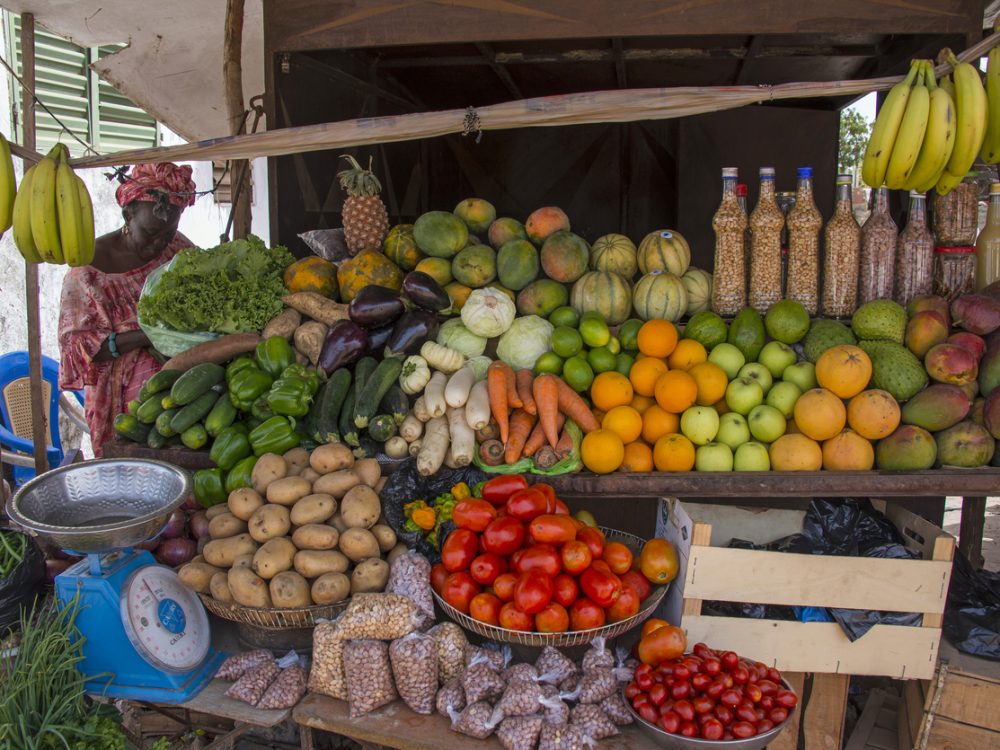
Challenging Pessimists—and Optimists—to Reimagine Data and Power
Josh Powell is the Chief Executive Officer of Development Gateway: An IREX Venture, who chairs the Global Partnership for Sustainable Development Data’s Technical Advisory Group (TAG). Jenna Slotin is Policy Director at the Global Partnership and has worked closely with Josh and other members of the TAG and Global Partnership team throughout the public consultation. Both Josh and Jenna regularly contribute to the Data Values Digest.
This post was written in partnership with The Data Values Digest. You can find the original post here.
This is a big month for the Data Values Project which is seeking input on a white paper through a public consultation until May 20. The white paper, Reimagining Data and Power, summarizes inputs from more than 240 people who have weighed in over the past year on what should characterize a fair data future. This week, the Digest’s editors sat down with two of the facilitators of the Data Values Project, Development Gateway’s CEO Josh Powell and the Global Partnership for Sustainable Development Data’s Policy Director Jenna Slotin, to talk about the project and building a movement for change in data for development.
You’ve both been working in the data for development space for years. What specific event or moment made it click for you that something like the Data Values Project was needed?
[Josh] I think it was a growing unease that I’d felt as someone who spends a lot of time in several different camps: working closely with governments as they aim to digitize their work while being part of a civil society ecosystem with legitimate concerns and objections based on privacy and group-level harms and often advising development agencies with strong ambitions to help “leapfrog” technologies to fill data gaps. I’ve developed a lot of respect and empathy for each of these perspectives and often tried to be a bridge between them, but I felt that a large-scale effort to invite debate and disagreement and identify commonalities was needed.
[Jenna] The turning point for me was the Global Partnership’s independent evaluation that showed that policy advocacy was an under-explored route to scaling our work and that a majority of partners wanted to see the network foster more collective advocacy. This reflected an emerging trend in popular culture and media examining how data was (re)shaping society and asking some uncomfortable questions about its effects on people.
Initially, it was exciting to realize that there was more we could do in this area. Then, it was terrifying. What does policy advocacy mean for such a broad and diverse network? How would we navigate these complex issues, define an agenda, and build collective ownership? With advice and guidance from the Technical Advisory Group, the Data Values Project was born.
There’s clearly a global consensus about the potential harms and risks associated with data collection and use—this Digest has explored many of these topics with authors from different sectors weighing in. Considering broad agreement about these problems, why hasn’t there been a more constructive collective conversation about these trade-offs?
[Jenna] While we do have a global consensus that there are risks, we don’t have consensus about which ones matter, to whom, why, or under what circumstances. At the outset of the Data Values Project, we found stark polarization between the optimists, who believed that new data sources and methodologies would inevitably lead to greater efficiency and better outcomes, and pessimists. In its extreme form, the optimistic view leads to policies that promote innovation above all else, even if people are harmed in the process. On the other end of the spectrum, pessimists see the potential risks and harms as so significant that they approach every new data-driven solution with skepticism and fear. This view leads to protectionist policies, limited experimentation, and a tendency to assume the worst.
I’m caricaturing to make this point that the failure to take a more balanced view that explores the trade-offs inherent in each decision has held back a more constructive conversation. But the conversation was also dominated by an elite few in governments, businesses, international organizations, civil society and academia. We had a hunch—and later found—that when you engage a broad cross-section of people and organizations who care about how data dominates their lives, a different, more nuanced picture emerges.
[Josh] I think there is a consensus that risks exist but disagreement as to the severity of those risks and their relative tradeoffs to perceived opportunities. For example, there’s a lot of alignment on the need for removal of personally identifiable information in datasets, but less so on how to structure or minimize data to avoid re-identification risk. Similarly, there’s a lot of excitement about using satellite imagery for a variety of questions (nighttime lights as proxy for poverty, estimating crop yields, etc.) but less attention paid to the possibility that imagery data can be used to target land grabs. In my view, laying out some core principles as the Data Values Project aims to do is a starting point, but then it is still crucial for each sector to take serious note of the potential risks in their own work and have a clear-eyed, good faith governance process on trade-offs.
Hundreds of people from around the world have engaged with the Data Values Project since last year. What’s one thing so far that has really surprised you?
[Josh] The most pleasant surprise has been just how much we’ve seen a shift from a purely technocratic lens of data toward a real focus on power and politics. Agency, accountability, and action, as described in the Data Values Project white paper, suggest a growing understanding that data exist within a cultural and political framework and that you cannot create a more equitable data ecosystem without engaging with those frameworks, mores, incentives, and histories. Obviously, this creates a far broader, often more muddled, picture of where to go and what to do, but it’s also far more honest and the only way toward a data for development community that affects meaningful and positive change.
[Jenna] I was also really surprised by how little people wanted to talk about technical issues. Time and again, we heard about the role of people, politics, relationships, skills and the fundamental value of participation in decision-making around data. From across the diverse community that has contributed to the Data Values Project so far, both optimists and pessimists see the need for a more nuanced, non-technical conversation, but many are just embarking on this journey and are looking for ideas and guidance.
What’s been the most challenging thing about this effort, either for you personally or for the project at-large?
[Jenna] One of the biggest challenges has been ensuring that we’re authentic. The Data Values white paper puts power at the center and argues that building a fair data future requires that all stakeholders take concrete steps to shift power to the people and communities that are affected by data collection and use. We are trying to connect with diverse people and communities, to listen rather than assume we know, to simplify our language and question the power of our own positions. But, we also want to be realistic about what concrete steps policy makers and institutions can make by identifying viable ways to shift that power. Finding this balance and preserving authenticity have been—and will continue to be—very difficult.
[Josh] Agreeing with too many people in principle and disagreeing in practice. The empathy I described earlier, and the inclusion of political and cultural lenses, mean that there are no clear answers to almost any of the questions we’re tackling. Each community often feels that they have the right approach but in practice may only have a piece of the puzzle. Working to pick out the best in each perspective and blend with the rest is a tricky balance.
What do you see as the potential impact of this project or this movement in the long-term?
[Josh] At its core, I hope that the Data Values Project will help to outline a clear agenda where there is emerging consensus, as well as to point out the fault lines between communities where more work is needed to broker compromise and deliver participatory approaches to data governance that feel legitimate, fair, and fit for purpose.
My first hope about what will come from this is that we will have a clear set of agreed-upon principles at a high level, which can feed into global debates at the UN, OECD, and so forth, to create a more nuanced conversation on the role of data in society and a continued shift away from simplified “data as oil” narratives. My second hope is that the Data Values Project creates just enough of a starting framework that communities focusing on issues such as agricultural transformation, child protection, gender equity, education, and so on can find a common point of reference from which to build more detailed, sector-specific approaches to negotiating trade-offs and delivering better policies and services that improve lives.
[Jenna] I hope that this movement inspires development practitioners to think more carefully about data and digital transformation and consider how their interventions may foster or undermine equity in society. My second hope is that this movement contributes to a new consensus on common values that people in different national contexts and working across sectors like health, agriculture, education can use as a touchstone to harness data in a way that balances trade-offs and empowers people.
The public consultation on ideas emerging from the Data Values Project is open through May 20th. Visit the consultation hub to weigh in on shaping the global campaign for a fair data future.
Photo credit – Bergslay: Pixabay.
Share
Recent Posts

Supporting Ethiopia’s National Soil Fertility and Health Action Plan
Declining soil fertility remains a major constraint on Ethiopia’s agricultural productivity. This blog reflects on the launch of the National Soil Fertility and Health Roadmap and DG’s support in its development, highlighting lessons on government-led reform and long-term resilience.

Development Gateway Collaborates with 50×2030 Initiative on Data Use in Agriculture
Development Gateway announces the launch of the Data Interoperability and Governance program to collaborate with the 50x2030 initiative on data use in agriculture in Senegal for evidence-based policymaking.

Strengthening Online Safety Through Prevention in the Philippines
Tech-Facilitated Gender-Based Violence continues to evolve alongside emerging technologies. This blog explores how preventative measures, such as the Safety By Design approach, can be used to create a safer internet.